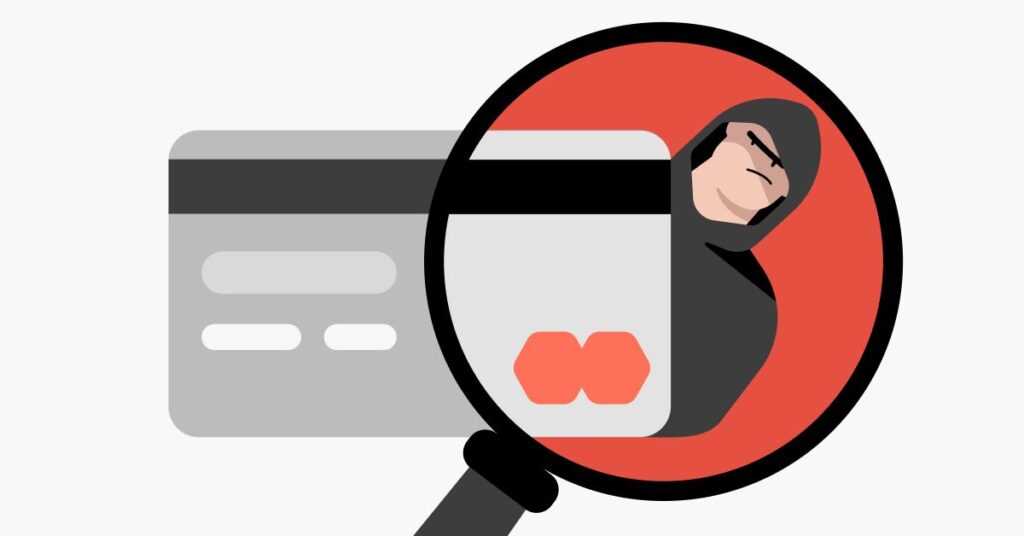Cotflt – All You Need To Know!
Cotflt made my travel booking effortless, with clear charges on my statement. Thanks to Cotflt, my trip planning was smooth sailing, leaving me with unforgettable experiences.
COTFLT stands for “Capital One Travel Flight.” It refers to charges on credit card statements for flight bookings made through Capital One Travel, a service provided by Capital One in partnership with Hopper.
Unlock hassle-free travel with COTFLT – Capital One’s seamless solution for booking flights and exploring the world with ease.
Detailed Introduction to COTFLT – Lets delve into detail!
In the world of credit card statements and online bookings, the term “COTFLT” might pop up, leaving many wondering what it means and why it’s there.

Let’s dive into this acronym and unravel its significance.
What is Cotflt?
Cotflt is short for “Capital One Travel Flight,” which essentially signifies charges related to flight bookings made through Capital One Travel, an online booking platform offered by Capital One in collaboration with Hopper.
When you spot a COTFLT charge on your credit card statement, it indicates that you or someone authorized to use your card has booked a flight through Capital One Travel.
Origin and Purpose of COTFLT Charges:
Capital One Travel aims to simplify travel planning by providing users with a hassle-free platform to book flights, hotels, and car rentals.
The partnership between Capital One and Hopper ensures users access competitive deals and additional rewards for eligible cardholders.
COTFLT charges reflect the transactions made through this platform, highlighting the convenience and benefits it offers to travelers.
Identifying COTFLT Charges
How to Recognize COTFLT Charges on Your Statement?
When checking your credit card statement, spotting a “COTFLT” charge might initially raise questions. However, understanding its origins can alleviate any concerns.
“COTFLT” stands for “Capital One Travel Flight,” indicating that a flight booking was made through Capital One Travel.
These charges typically appear when you or someone authorized to use your card books a flight via the Capital One Travel platform.
Common Legitimate Scenarios for COTFLT Charges
Personal Travel Planning:
If you recently booked a flight for personal or business travel through Capital One Travel, you’ll likely encounter a corresponding COTFLT charge on your statement. This charge reflects the payment made for the flight booking processed by Capital One Travel.
Authorized User Transactions:
If you’ve authorized someone else, such as a family member or colleague, to use your credit card for travel-related expenses.
COTFLT charges may appear on your statement for flights they book through Capital One Travel. This scenario is common for shared credit card accounts.
Capital One Travel Rewards:
For Capital One credit cardholders enrolled in rewards programs, booking flights through Capital One Travel often yields additional benefits or rewards.
In such cases, COTFLT charges represent not only the flight payment but also potential rewards earned through the transaction.
Understanding these common scenarios can help you recognize legitimate COTFLT charges on your credit card statement.
If you’ve recently engaged in any travel-related transactions through Capital One Travel, chances are the COTFLT charges you see are entirely legitimate.
Unauthorized COTFLT Charges – Understanding and Taking Action!

Signs of Unauthorized or Fraudulent COTFLT Charges:
If you’re scanning through your credit card statement and spot unfamiliar charges marked as “COTFLT,” it’s essential to discern whether these transactions are legitimate or potentially fraudulent. Here are some signs to look out for:
Unrecognized Transactions: Check for any COTFLT charges that you don’t recall making or authorizing. If the charge doesn’t align with your travel plans or expenses, it could indicate unauthorized activity.
Suspicious Timing: Pay attention to the timing of the charges. If they occur during periods when you weren’t planning or expecting to book flights, it raises red flags for potential fraud.
Unusual Amounts: Take note of any unusually high or frequent COTFLT charges that seem out of the ordinary compared to your typical travel spending patterns.
Immediate Actions to Take if You Suspect Fraud
Discovering unauthorized charges on your credit card statement can be alarming, but prompt action can mitigate potential risks. Here’s what you should do if you suspect fraudulent COTFLT charges:
- Contact Your Credit Card Issuer:
- Immediately reach out to your credit card issuer upon noticing any suspicious COTFLT charges.
- You can do this by calling the customer service number on the back of your card or through your online account.
- Report the Suspicious Charges:
- Inform your credit card issuer about the specific COTFLT transactions that you believe to be unauthorized.
- Provide as much detail as possible to aid in their investigation.
- Request Investigation:
- Ask your credit card issuer to investigate the charges promptly.
- They will typically review the transactions to determine their legitimacy and may take necessary actions such as issuing a refund if the charges are indeed unauthorized.
- Secure Your Account:
- To prevent further unauthorized activity, your credit card issuer may advise temporarily freezing or canceling your current card and issuing a new one.
- Follow their guidance to safeguard your account and financial information.
By taking swift action and collaborating with your credit card issuer, you can address unauthorized COTFLT charges effectively and protect yourself from potential financial harm.
Remember to stay vigilant and regularly monitor your credit card statements for any signs of suspicious activity.
Must Read: Cảbon – All You Need To Know!
Preventive Measures – Tips for Monitoring and Securing Your Credit Card!
In today’s digital age, ensuring the security of your financial transactions is paramount. By implementing a few simple strategies, you can safeguard your credit card and prevent unauthorized charges.
Regularly Monitor Your Credit Card Statements:
One of the most effective ways to detect unauthorized charges is by regularly reviewing your credit card statements.
Make it a habit to check your statements each month, ensuring that all transactions are familiar and authorized. Look out for any suspicious activity, such as unfamiliar charges or discrepancies in amounts.
Set Up Transaction Alerts:
Many credit card issuers offer the option to set up transaction alerts via email or text message. Take advantage of this feature by enabling alerts for all transactions, including purchases, withdrawals, and transfers.
This way, you’ll receive instant notifications whenever a transaction occurs, allowing you to quickly identify and address any unauthorized activity.
Monitor Your Credit Score:
Your credit score can provide valuable insights into your financial health and activity. Regularly monitoring your credit score can help you detect any unusual changes or unauthorized inquiries that could indicate fraudulent activity.
Several free credit monitoring services are available, making it easy to stay informed about changes to your credit profile.
Secure Your Online Accounts:
Ensure the security of your online accounts, including your credit card issuer’s website and any third-party booking platforms like Capital One Travel.
Use strong, unique passwords for each account and enable two-factor authentication whenever possible. Avoid sharing sensitive information, such as your credit card details, over unsecured networks or unfamiliar websites.
Report Suspicious Activity Promptly:
If you notice any unauthorized charges or suspicious activity on your credit card statement, take immediate action.
Contact your credit card issuer as soon as possible to report the unauthorized charges and request further assistance. Prompt reporting can help minimize the impact of fraudulent activity and expedite the resolution process.
Steps to Minimize the Risk of Unauthorized Charges

Verify Charges Labeled as COTFLT:
If you see a charge labeled as “COTFLT” on your credit card statement, verify whether you or someone authorized to use your card made a flight booking through Capital One Travel.
Confirm with other cardholders on your account to ensure the charge is legitimate. If you did not authorize the charge, it could indicate fraudulent activity, and you should report it to your credit card issuer immediately.
Be Cautious When Sharing Payment Information:
Exercise caution when sharing your credit card information, especially online. Only provide your card details on secure websites with HTTPS encryption and reputable payment gateways.
Avoid sharing your credit card information over email or text message, as these channels are not secure and could be vulnerable to interception by fraudsters.
Review Privacy and Security Policies:
Before making any online purchases or sharing your credit card information, review the privacy and security policies of the websites or platforms you’re using.
Ensure they have adequate measures in place to protect your personal and financial data, such as encryption protocols and secure payment processing systems.
Keep Your Contact Information Updated:
Ensure that your credit card issuer has up-to-date contact information for you, including your phone number and email address.
This will enable them to reach you quickly in case of any suspicious activity or security concerns. Regularly review and update your contact information to ensure seamless communication with your issuer.
Educate Yourself About Common Scams:
Stay informed about common scams and fraud tactics targeting credit card users. Be wary of unsolicited emails, phone calls, or text messages requesting sensitive information or offering too-good-to-be-true deals.
Educate yourself about phishing scams, identity theft, and other fraudulent schemes, and remain vigilant when interacting with unfamiliar sources.
By implementing these preventive measures and staying vigilant, you can minimize the risk of unauthorized charges on your credit card and protect your financial well-being.
Remember to regularly monitor your credit card statements, report any suspicious activity promptly, and take proactive steps to secure your accounts and personal information.
Also Read: Counter.Wmail-Service.Com – A Malign Threat!
Frequently Asked Questions:
Why am I seeing a COTFLT charge?
You are seeing a COTFLT charge because a flight booking was made through Capital One Travel using your credit card.
What should I do if I did not authorize a COTFLT charge?
Contact your credit card issuer immediately to report the charge and follow their instructions to resolve the issue.
How can I prevent unauthorized COTFLT charges?
Regularly monitor your credit card statements, set up transaction alerts, secure your online accounts, and report any suspicious activity promptly to minimize the risk of unauthorized charges.
Can unauthorized COTFLT charges indicate a scam or fraud?
Yes, unauthorized COTFLT charges may indicate fraudulent activity. Scammers might use the recognizable name of Capital One Travel to disguise their activities. Stay vigilant and report any suspicious charges to your credit card issuer.
Are there any preventive measures I can take to protect against COTFLT fraud?
Yes, you can take several preventive measures, including verifying charges labeled as COTFLT, being cautious when sharing payment information, reviewing privacy and security policies, keeping your contact information updated, and educating yourself about common scams.
How can I stay informed about my credit card transactions?
Regularly monitor your credit card statements, set up transaction alerts, and educate yourself about common scams and fraud tactics targeting credit card users to stay informed about your financial transactions.
What should I do if I suspect fraudulent activity on my credit card?
If you suspect fraudulent activity on your credit card, contact your credit card issuer immediately to report the activity and request further assistance. Prompt reporting can help minimize the impact of fraud and expedite the resolution process.
Conclusion:
Staying vigilant against unauthorized charges labeled as COTFLT is essential for protecting your credit card. By monitoring your statements, verifying transactions, and promptly reporting any suspicious activity, you can safeguard your financial well-being and enjoy worry-free travel booking experiences. Remember, proactive measures and timely action are key to maintaining the security of your credit card and ensuring peace of mind in your financial transactions.
Read More:






